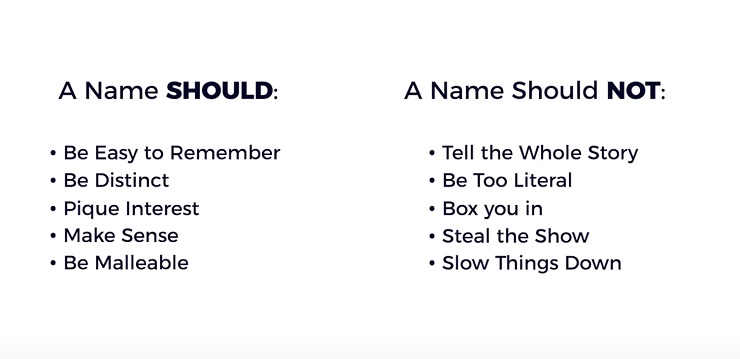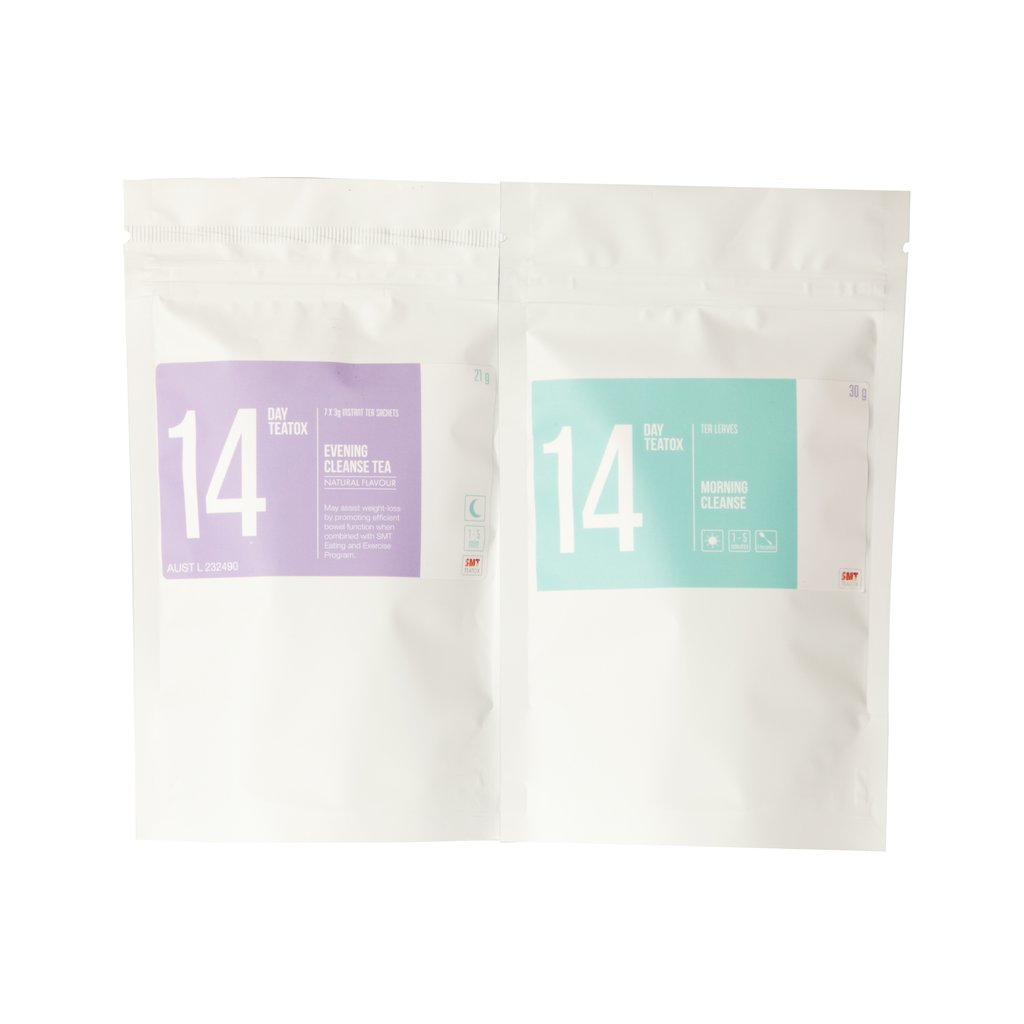How To Create A Cool Brand Name
Apple, Uber, Starbucks, and Disney. All are iconic brand names that seem perfect in hindsight.
But when the founders came up with these good brand names, was it a stroke of genius? Or is there a process for selecting memorable, catchy names that stand the test of time?
For Gretta van Riel and other successful entrepreneurs, choosing a brand name had a lot less to do with luck and a lot more to do with a process. After launching four multimillion-dollar ecommerce brands, Gretta has developed a step-by-step method for choosing the perfect brand name for your startup—and fast.
How fast?
Try 20 minutes or less.
Before you get too excited, we have an important disclaimer: don't worry about perfecting your brand name just yet.
Got that? Alright, let's go!
READ MORE: 28 Successful Founders Share Their Advice on How To Start a Startup
Gretta's Method For Choosing A Brand Name
Gretta's formed a lot of brands over the years, and coached thousands of aspiring entrepreneurs on how to find great product ideas, get traction on social media, share their messages, and develop repeat customers.
But surprisingly, one of the biggest places Gretta sees new entrepreneurs getting stuck is when coming up with a name.
"They see the success of brands like Uber, Google, and Apple, and believe that a creative name will lead to great success," she says.
"This is a big mistake. The truth is, a name is only one part of a great business. But it's far from the biggest part. In fact, many iconic brand names only became memorable after people experienced an incredible product or service."
In other words, the brand name was only great because the product was great first.
Not to mention the fact that many brands picked a name and pivoted. For example, Google's first name was BackRub, Pepsi was Brad's Drink, and Instagram was Burbn.
Gretta's advice to founders is not to seek a perfect brand name from the start, but to seek a "good enough" brand name.
"Obviously, don't just choose the first random word that came into your head. But also remember the reason you got into business in the first place. It probably wasn't to spend all day dreaming up the perfect name."
Below, Gretta outlines a simple process you can use. But the important disclaimer that she gives every entrepreneur is that you don't have to have a perfect name to start.
You can always change it later on.
What a Great Brand Name Should and Should Not Do

There are no hard-and-fast rules for what a brand name can or cannot be.
For example, some brands like Adidas just combined the founder's nickname with three random letters to create a memorable brand name. While others, like Xerox, come from a shortening of the word "xerography", the technical name for the dry copying process that photocopiers use.
But Gretta has developed some basic guidelines for what a great brand name should and should not do.
READ MORE: How to Start a Business for $127 (or less!)
A Great Brand Name Should:
Be Easy to Remember
Have you ever been listening to your favorite podcast, heard an ad for an interesting product, and then couldn't buy it because you couldn't remember the URL the host mentioned? Now imagine how difficult it is to stand out if it wasn't just a non-memorable URL, but it was a difficult-to-remember brand name.
A tough-to-remember name does a lot more damage. It makes it much harder for people to get to your website and become customers. So, instead of choosing a brand name inspired by the etymology of Greek words combined with the name of the street you grew up on, choose something easy to remember.
Simple, catchy names like Apple, Uber, and Target are infinitely better than The Antidisestablishmentarianism Co. or The Pneumonoultramicroscopicsilicovolcanoconiosis Cure.
(Those are real words by the way).
READ MORE: 100 of the Best Side Hustle Ideas and Jobs
Be Distinct
How many Pizza places do you think exist in the world? Probably thousands.
On the other hand, there is only one Dominoes. Generic brand names can work for hometown local businesses, but they're difficult to make into global brands.
Pique Interest
A good name should make people intrigued about what the brand is.
For example, when you find out Purple is a mattress company, you probably want to know why they have that name. The name pulls you in to learn more about the story of the brand. And that's a characteristic of many great brands.
For example, the name Gretta chose for her line of teas, Skinny-Me-Tea, pulls you in. You might think, "How does it make me skinny?" "Does it actually work?" "What's in it?"
This is the kind of intrigue you want your brand name to trigger.

Make Sense
When you choose a name for your brand, it should relate back to what your core business does.
You want to choose a brand name that relates in some way back to your core business. It doesn't have to be a direct, word-for-word match, like Water Bottles For Sale. You can be creative.
For example, Nike chose its name for the connection to the Greek goddess of victory. But it should relate, at least in some way, to what your brand will ultimately do. Otherwise, it risks confusing people and losing customers.
READ MORE: The 3 Best Low-Cost Businesses to Start with $1,000 or Less (Even $0!)
Be Malleable
You should always choose a brand name that can flex and adjust with your business' needs over time. The last thing you want is to choose a brand name that boxes you in forever.
If you are launching a Keto supplement company, you might not want to call it KetoProtein. If the Keto trend goes away, that name doesn't give you much wiggle room to change and grow. But something more malleable like FatForFuel could shift for changing tastes in the marketplace. You could keep the prefix "___For" or the suffix "Fuel" as the core of your brand name.
A Brand Name Should NOT:
Tell the whole story
Your brand name alone cannot do all your marketing. So you should never put the onus of telling the entire story about your company on the name. Consider Gretta's The 5th Watches.
"The 5th" portion of the name communicates a lot about the brand, once you're familiar with it. It tells you when they have sales (the 5th of the month) and how long those sales last (five days). It also communicates an air of high fashion, drawing on elements of New York's fashion district on 5th Avenue. But while all those things are eventually communicated through the name, notice that the name doesn't try to tell you all that at once.
It's not called The 5-Day High-End Watch Seller on The 5th of The Month. It's just The 5th Watches. You learn the whole story later, but the name just captures the essence of the brand.
Be Too Literal
Brand names should never be so literal that they become generic.
The brand Planter's Peanuts wouldn't just want to call itself The Peanut Snack Company. It's so literal that customers will never remember it. And even if they do, there's no way for them to differentiate yours from Joe Schmoe's down the road.
READ MORE: 4 Online Business Ideas for Absolute Beginners
Box You In
Names that box you into one specific niche, category, or type of product are like putting your business in a straightjacket. No matter what you do to pivot, you'll remain stuck. It would be very hard for a company named Moving Supplies Co. to pivot into having actual movers pick up and haul stuff.
Even though they're related services, people would never think that the moving supply company would be able to do the actual moving.
Steal The Show
While a brand name that's boring can be bad for business, a flashy name can be even worse. Your brand name should never distract from the core function or product that your business provides.
Slow Things Down
Choosing a brand name is challenging.
But it's not something to agonize over for weeks and weeks. And while you never want to have to change it, mistakes can be corrected. If there's a perfect domain you want that doesn't expire for another year, don't wait.
Use this post and your creative muscles to come up with other potential names. Just don't get stuck on your name because many great names came from decisions that the founder made on a whim.
With those factors in mind, here are the different types of brand names you can choose for your startup. All these can work, but use Gretta's tips on which is most applicable to your business.

4 Types of Brand Names To Choose From
Here's a breakdown of those four types of brand names and who should consider using them for their business.
The Generic Brand Name
"Think of brands like Hotels.com or Cars.com. Those are generic names," Gretta says.
Names like these can be tough to secure for many reasons. The biggest being that generic domains like robot.com have big asking prices, in excess of seven-figures.

But also because this category of the name almost never meets the above criteria for what a good brand name should do.
For example, "Smartphone" might be a solid generic name for your phone product. But it doesn't pique interest. It is too literal and completely boxes you into one category.
"Unless you already own the domain, I would avoid this type of name for your startup."
The Descriptive Brand Name
This is where the name attempts to describe what the brand/products can do for the end-users. For example, Gretta chose the name SkinnyMe Tea for her line of weight loss/detox teas. This name tells you the core promise of the product right in the name. You know what you're getting just by reading the name and that's powerful.
Other names that would fall in the descriptive category include Burger King, Pizza Hut, Internet Explorer, Gmail, and more. Each of these names alludes to or describes what the underlying business does. This can make a great category of name for your business.
READ MORE: 4 Online Business Ideas to Consider During a Pandemic
The Suggestive/Associate Brand Name
This is where the brand doesn't exactly tell you what the company does but implies what it does through words that convey strong imagery and emotions.
For example, take Greyhound. The business doesn't sell greyhound dogs, but they do help you get from one place to another quickly via a business. So, in a sense, they are associating the speed and quality of the dog with their traveling brand.
Another example is Subway. It's not a transit company. But they do specialize in selling submarine sandwiches, or subs.
One of the big benefits of this kind of name is that the only restraint you have is your creativity. So it can be great for any founder that wants a name that is distinct, rooted in history, or a fun play on words.
READ MORE: 5 Low-Cost Startup Business Ideas You Can Implement with Less Than $100
The Coined, Random, or Abstract Brand Name
This is the category of brand name that requires the most creativity and can take a while to nail down. But many of the most iconic brands of our time came from seemingly made-up words.
"While these names are a blank slate, they're harder to build brand recognition around and I personally wouldn't use them in many cases," Gretta warns.
The reason these names don't always work is because there's nothing for people to connect it to initially. If you're launching a totally new product in a totally new category, you should be cautious about using this type of name.
Exercise: Choose Your Brand Name in 20 Minutes with Namestorming
Finding the BEST Brand Name | Ecommerce Tips 101
Now that you know the different categories of brand names and what makes a great one, it's time to choose yours using Gretta's Namestorming activity.
To get started, simply set a timer for 20 minutes and follow these steps:
- Brainstorm 15 words that come to mind when you're thinking of your business. Anything that comes to mind is fair game.
- Break out the thesaurus and look for synonyms of those words. Dig deep to find some words that are unique, rare, out-of-the-ordinary that you might not have thought of.
- Narrow down your list to just 3-5 names. Pick your best ones to see if they're available. Cutting them might feel like pulling teeth but just go with your gut on the best ones you wrote down.
Once you select your 3-5 best, look up those names to find out if you're in the clear to launch your brand. Unfortunately, your first choice might be taken.
But once you have a winner, post the one you chose in the comments below. We'd love to see what you come up with!

How To Create A Cool Brand Name
Source: https://foundr.com/articles/marketing/how-to-choose-a-brand-name
Posted by: lopezdresse.blogspot.com

0 Response to "How To Create A Cool Brand Name"
Post a Comment